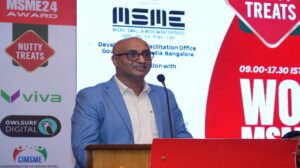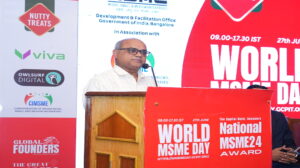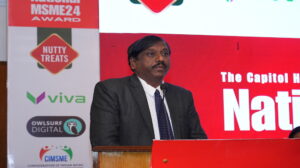In China, Bill Gates Encourages the World to Build a Better Toilet

Bill Gates’s Reinvented Toilet Expo in Beijing was a chance for companies to showcase their takes on the simple bathroom fixture. Credit Credit Gilles Sabrié for The New York Times
BEIJING — Bill Gates believes the world needs better toilets.
Specifically, toilets that improve hygiene, don’t have to connect to sewage systems at all and can break down human waste into fertilizer.
So on Tuesday in Beijing, Mr. Gates held the Reinvented Toilet Expo, a chance for companies to showcase their takes on the simple bathroom fixture. Companies showed toilets that could separate urine from other waste for more efficient treatment, that recycled water for hand washing and that sported solar roofs.
It’s no laughing matter. About 4.5 billion people — more than half the world’s population — live without access to safe sanitation. Globally, Mr. Gates told attendees, unsafe sanitation costs an estimated $223 billion a year in the form of higher health costs and lost productivity and wages.
The reinvented toilets on display are a culmination of seven years of research and $200 million given by the Bill and Melinda Gates Foundation, which the former software tycoon runs with his wife, since 2011. On Tuesday, Mr. Gates pledged to give $200 million more in an effort get companies to see human waste as a big business.

“We see ourselves on the cusp of a sanitation revolution,” Mr. Gates said.CreditGilles Sabrié for The New York Times
Mr. Gates said in an interview that “it will be at least a decade” before the reinvented toilets reach tens of millions of people in the poorest areas, and they will have to prove both practical and economical. “Nobody wants overnight solutions” in sanitation, he added.
Mr. Gates brought his pitch to China in hopes of finding an appreciative audience. The country, now the world’s second-largest economy, has made improving the daily lives of its once poverty-stricken people a top priority. Though it has made great strides in recent years, China’s sanitation system remains deficient in many areas.
More than a quarter of Chinese families still lack a sanitary toilet in their homes, according to official figures, and only about 60 percent of Chinese rural households have toilets that treat human waste.
Xi Jinping, the country’s top leader, has called for a “toilet revolution.” (Incidentally, the Reinvented Toilet Expo is called “Toilets in the New Era” in Chinese.) Having clean toilets, Mr. Xi said in 2015, is an important goal in “advancing the revitalization of the countryside.”
Li Shuangxin, a 41-year-old stay-at-home mother who lives on the outskirts of Beijing, walks about 100 meters to an outhouse several times a day from her shack. About 20 people share the “toilet,” which is little more than two planks over a mud pit.

China’s sanitation system remains deficient in many areas, though it has made great strides. More than a quarter of Chinese families still lack a sanitary toilet in their homes, according to official figures. Credit Gilles Sabrié for The New York Times
“When you do your business, you just don’t look down,” she said. “I’m not satisfied with such a toilet, but you don’t really have a choice. Our economic conditions are such.”
But China’s toilet revolution has led to excesses — a problem that critics say could plague the Gates effort as well.
To win favor with Beijing, local officials have tried to outgun one another with newfangled latrines, many equipped with flat-screen televisions, Wi-Fi and facial-recognition toilet paper dispensers. (Thieves have been known to make off with entire rolls.) There were even refrigerators, microwave ovens and couches, prompting China’s tourism chief at the time to instruct officials in January to rein in their “five-star toilets” and avoid kitsch and luxury.
Though the products on display on Tuesday were nowhere as flashy, Mr. Gates has drawn criticism for giving thousands of dollars to universities in developed countries to create high-tech toilets that will take years to pay off — if they ever do.
“Sometimes doubling down is necessary but you’ve got to be reflective,” said Jason Kass, the founder of Toilets for People, a Vermont-based social business that provides off-grid toilets. “Has any of the approaches done in the last five years created any sustainable lasting, positive impact vis a vis sanitation? And the answer, as far as I can see, is no.”

Mr. Gates has drawn criticism for giving money to universities in developed countries to create high-tech toilets that will take years to pay off — if they ever do. Credit Gilles Sabrié for The New York Times
“It might be a thing like the space program where people have fantasies about colonizing the moon and Mars, but it’s really not that practical,” he said.
Mr. Gates acknowledged that some reinvented toilets, in small volumes, could cost as much as $10,000, but added, “That will pretty quickly come down.”
“The hard part will be getting it from $2,000 to $500,” he said. “I’d say we are more confident today that it was a good bet than where we started, but we are still not there.”
The Gates Foundation said the World Bank, the Asian Development Bank and the African Development Bank would commit $2.5 billion in financing for sanitation projects that provide people in all parts of a city — including the poorest neighborhoods — with safely managed sanitation services.
“We see ourselves on the cusp of a sanitation revolution,” Mr. Gates told expo attendees on Tuesday.

Companies showed toilets that could separate urine from other waste for more efficient treatment, that recycled water for hand washing and that sported solar roofs. Credit Gilles Sabrié for The New York Times
At a showroom in an art center in Beijing, companies including China’s Clear, Ecosan and CRRC, Sedron Technologies of the United States, India’s Eram Scientific and Switzerland’s Blue Diversion Autarky displayed toilets that could separate urine and recycle water for hand washing.
During his opening remarks, Mr. Gates said he started getting interested in sanitation after he stopped working full time at Microsoft and began traveling more frequently to poor countries with his wife, Melinda.
Holding up a beaker of fecal matter, Mr. Gates reminded the audience that human waste is disgusting, containing 200 trillion rotavirus cells and 100,000 parasitic worm eggs, among other bacteria.
Mr. Gates’s efforts to bring the discussion of toilets into the mainstream have legitimized a topic that many have avoided talking about for decades, said Jack Sim, the founder of the World Toilet Organization, a Singapore-based nonprofit organization committed to improving toilet and sanitation conditions worldwide.
“The subject of toilets has been a neglected subject for some time,” said Mr. Sim. “The Gates Foundation is part of this momentum of breaking the taboo.”






